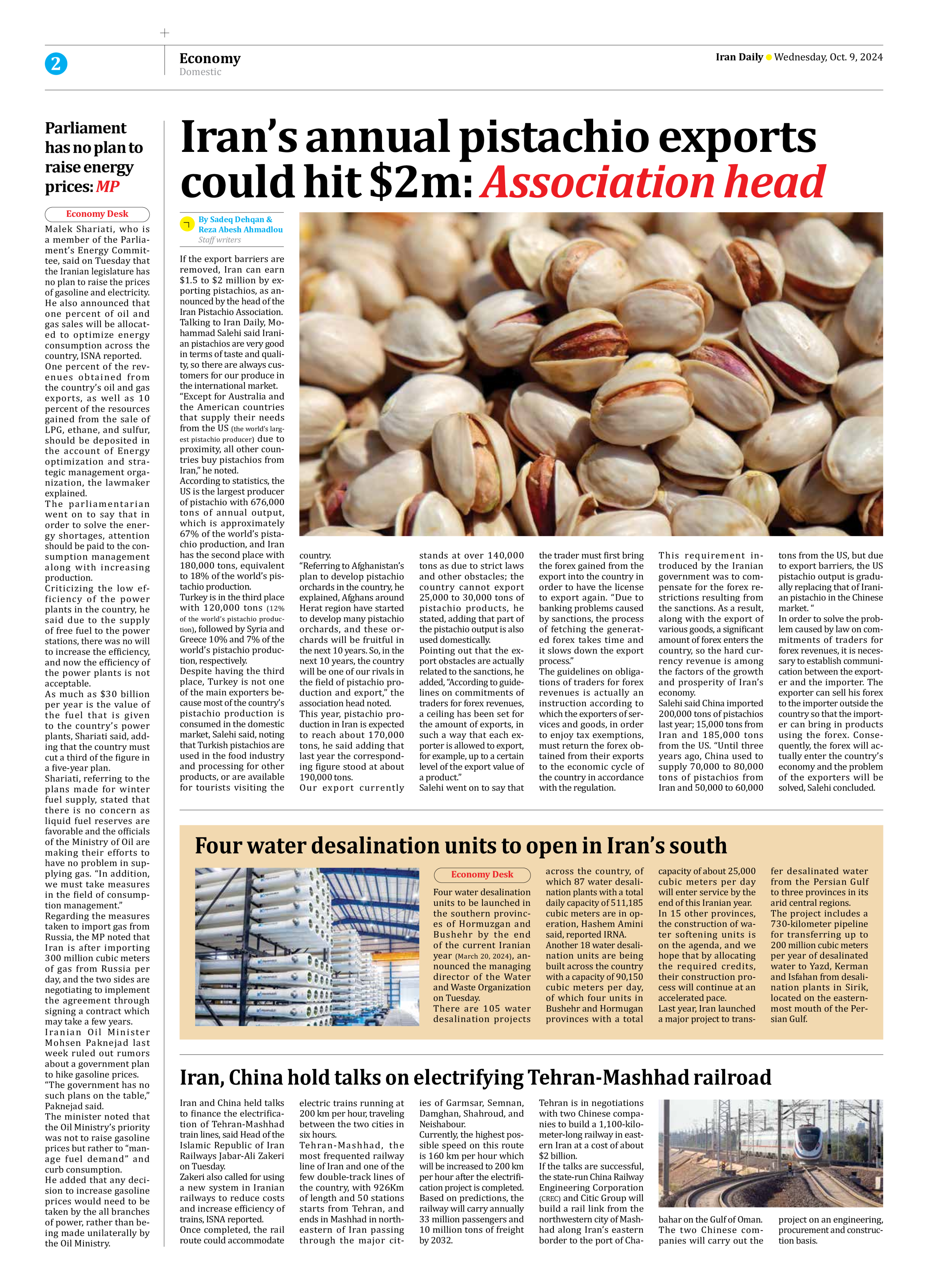
Parliament has no plan to raise energy prices: MP
Malek Shariati, who is a member of the Parliament’s Energy Committee, said on Tuesday that the Iranian legislature has no plan to raise the prices of gasoline and electricity.
He also announced that one percent of oil and gas sales will be allocated to optimize energy consumption across the country, ISNA reported.
One percent of the revenues obtained from the country’s oil and gas exports, as well as 10 percent of the resources gained from the sale of LPG, ethane, and sulfur, should be deposited in the account of Energy optimization and strategic management organization, the lawmaker explained.
The parliamentarian went on to say that in order to solve the energy shortages, attention should be paid to the consumption management along with increasing production.
Criticizing the low efficiency of the power plants in the country, he said due to the supply of free fuel to the power stations, there was no will to increase the efficiency, and now the efficiency of the power plants is not acceptable.
As much as $30 billion per year is the value of the fuel that is given to the country’s power plants, Shariati said, adding that the country must cut a third of the figure in a five-year plan.
Shariati, referring to the plans made for winter fuel supply, stated that there is no concern as liquid fuel reserves are favorable and the officials of the Ministry of Oil are making their efforts to have no problem in supplying gas. “In addition, we must take measures in the field of consumption management.”
Regarding the measures taken to import gas from Russia, the MP noted that Iran is after importing 300 million cubic meters of gas from Russia per day, and the two sides are negotiating to implement the agreement through signing a contract which may take a few years.
Iranian Oil Minister Mohsen Paknejad last week ruled out rumors about a government plan to hike gasoline prices.
“The government has no such plans on the table,” Paknejad said.
The minister noted that the Oil Ministry’s priority was not to raise gasoline prices but rather to “manage fuel demand” and curb consumption.
He added that any decision to increase gasoline prices would need to be taken by the all branches of power, rather than being made unilaterally by the Oil Ministry.







